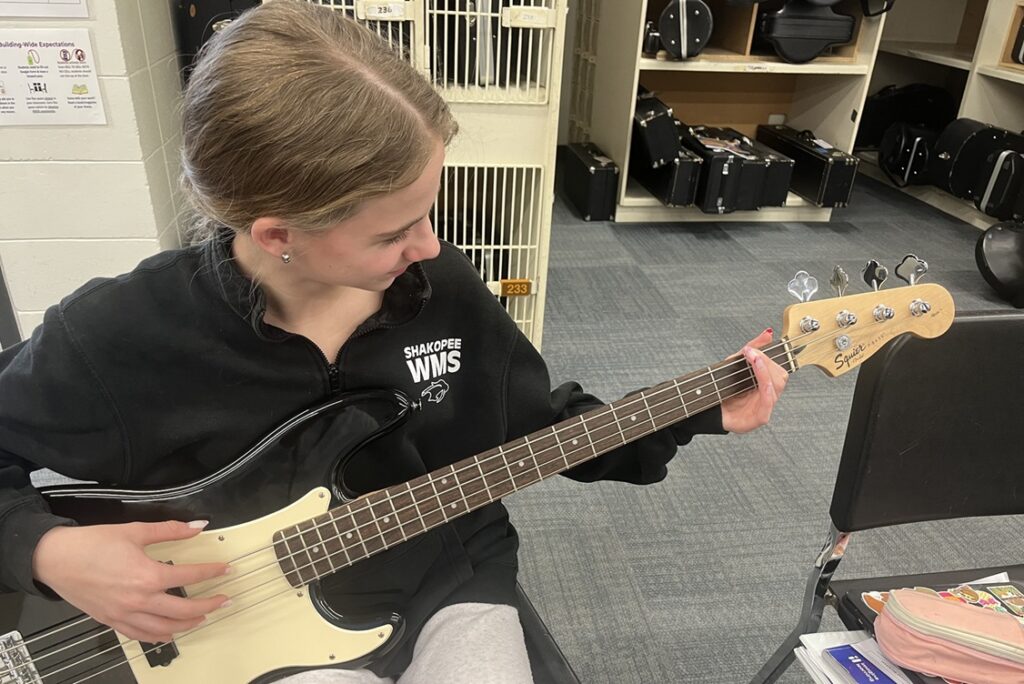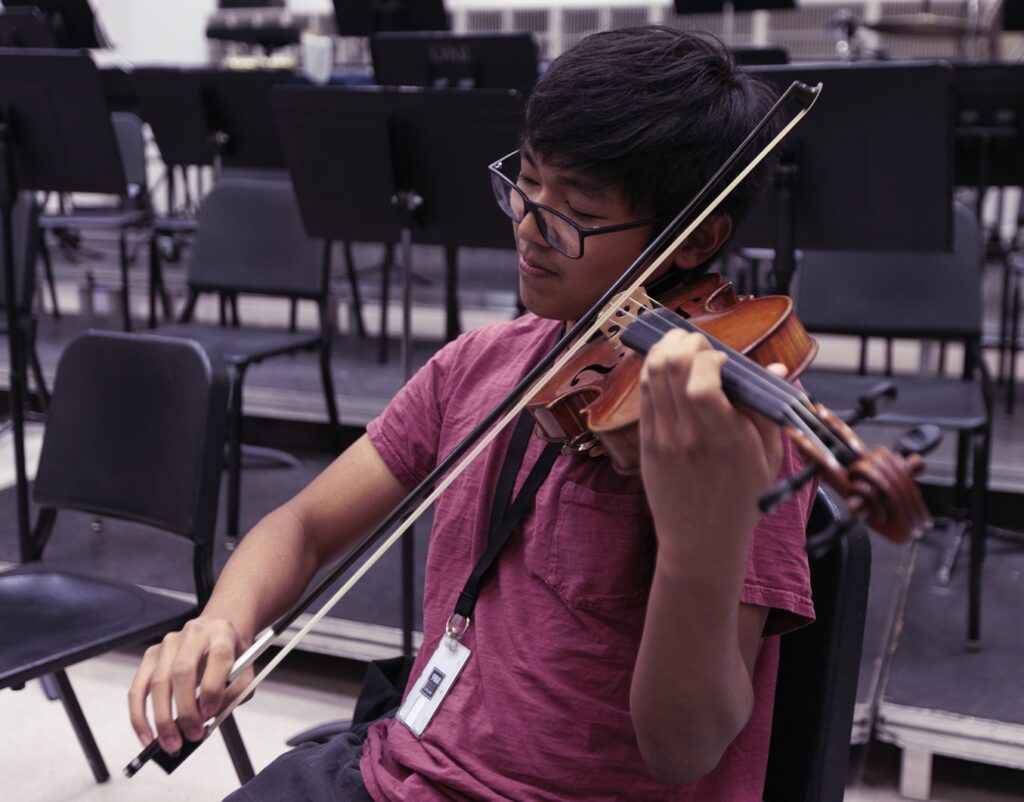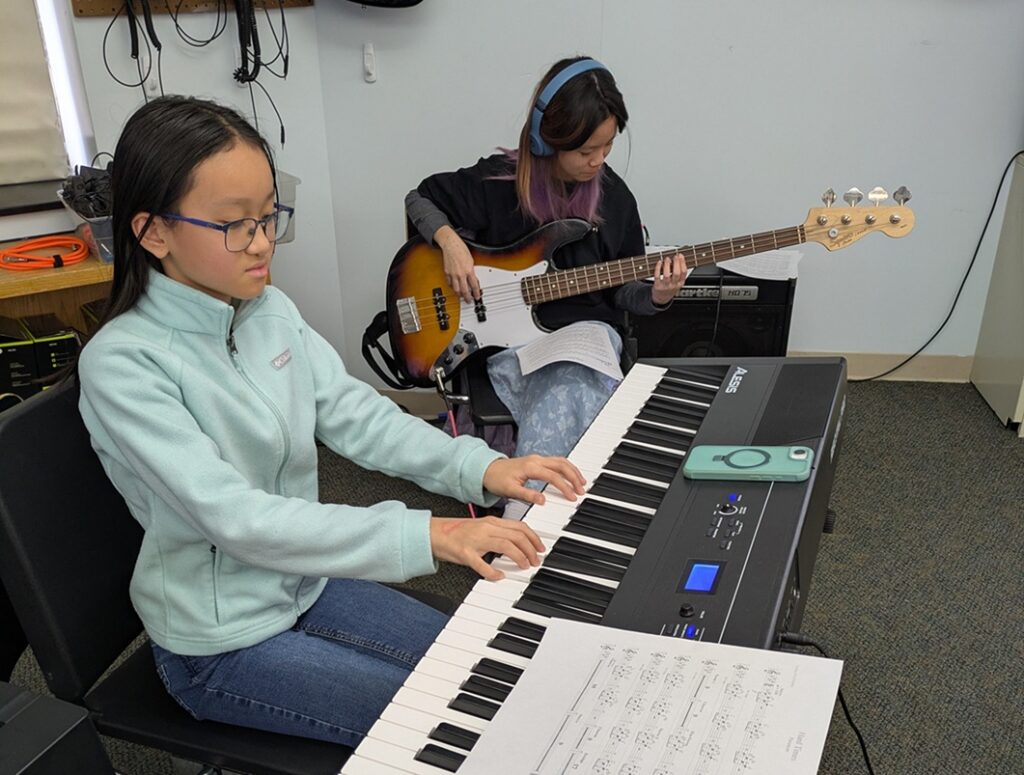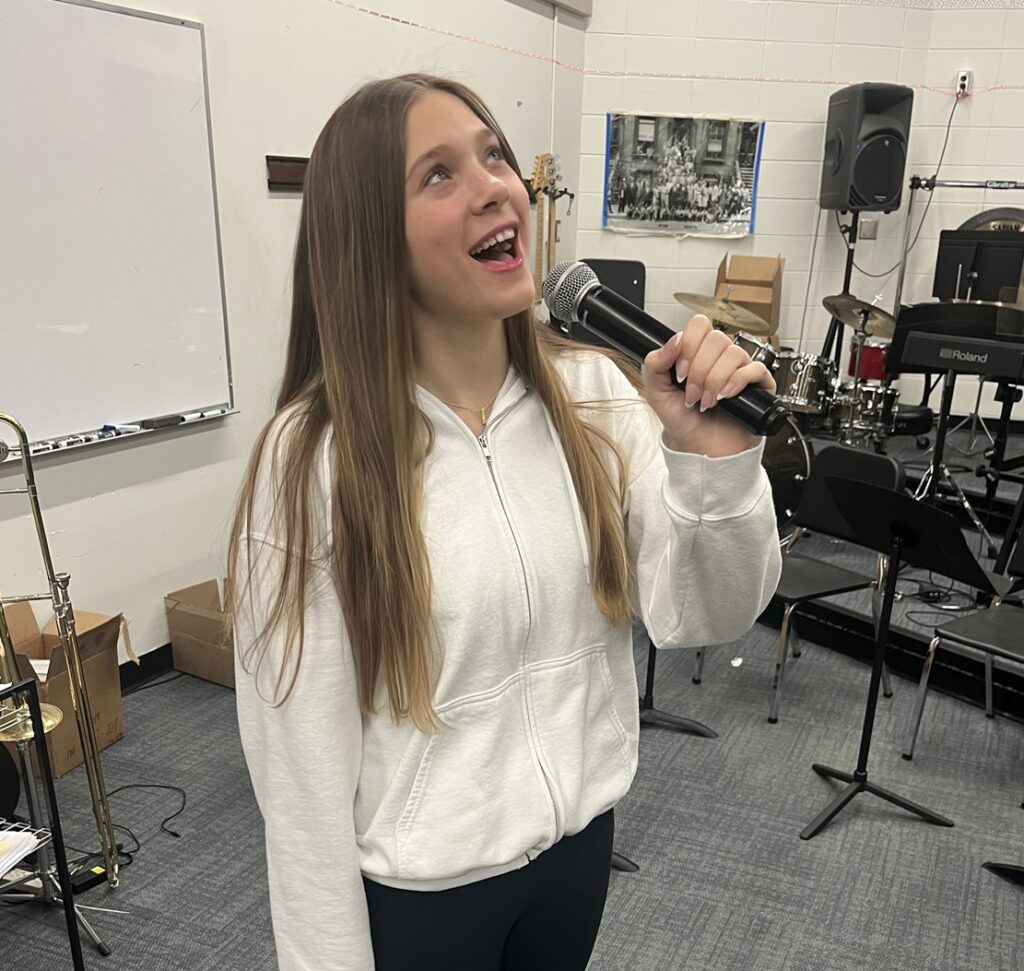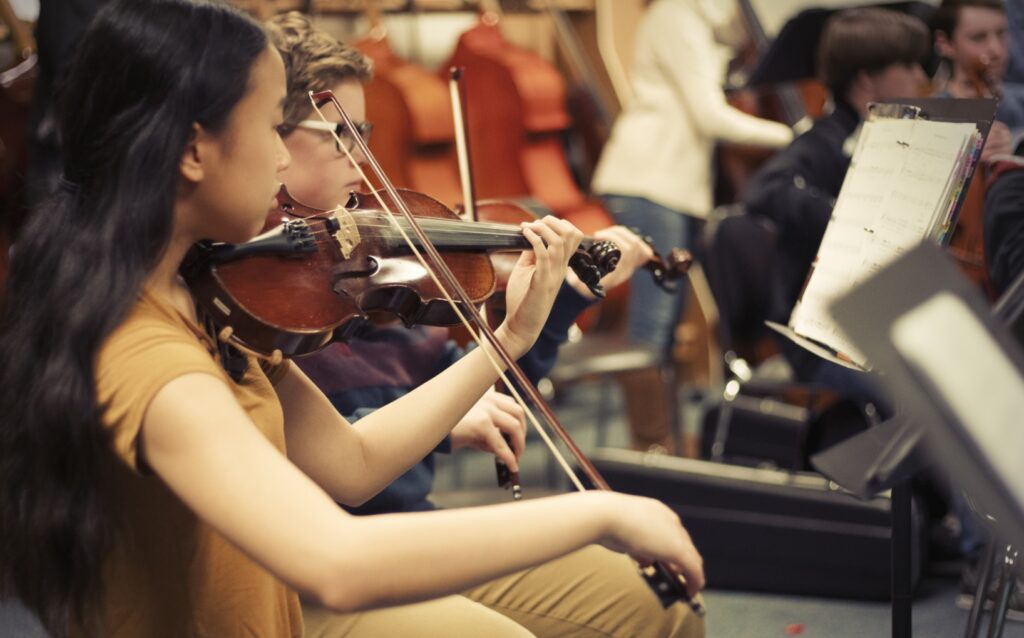Music Class is the Ultimate Life Skills Workshop
In your classroom, students can learn skills far beyond music that will help them prepare for the future.
Random person on social media: “Schools are failing us — they need to bring back shop, accounting and COMMON SENSE.”
Listen, I appreciate the feedback, but I think we’re doing just fine. Now, don’t get me wrong: Schools can always improve, and educators are always looking for ways to get better. But we must be realistic about the growing list of expectations placed on schools today. It’s not just about teaching the basics anymore.
I love being practical and actionable in my approach. So instead of getting caught up in the noise, let’s focus on what we can do in our classrooms, right now. After all, there are plenty of life lessons being taught every day, whether or not people realize it.
In my music classroom, we’re not just talking about notes and rhythms. This year alone, I’ve dealt with plenty of situations that had little to do with music, and a lot to do with life skills — things that could be considered “common sense.”
Here are five areas where music students are learning valuable life lessons:
- Conflict Resolution
- Time Management and Organization
- Appearance and Hygiene
- Leadership & Employment
- Family Connections
Let’s dive in and talk about how these life skills are just as important as hitting the right notes.

Area 1: Conflict Resolution
“Let’s not argue about who’s right. Let’s just agree that I am.”
I once read that 10% of conflicts are real disagreements; the other 90% are tone and communication issues. In my class, it’s not just about learning notes but managing high emotions. I make it a point to teach students how to manage disappointment and resolve conflicts constructively, whether they’re upset about seating arrangements or feeling unheard.
Recently, a student came to me because they were frustrated with another teacher’s feedback. We practiced respectful ways to approach the teacher and have that difficult conversation, and just days later, the student felt there was a breakthrough. All it took was a conversation, and it wasn’t nearly as difficult as the student thought (and the student found out that this teacher did not “hate them,” but in fact, cared quite a bit about their progress). These skills will serve students far beyond the classroom. Conflict resolution is something they’ll carry into the workplace and personal relationships.

Area 2: Time Management and Organization
We can care for our students AND we can understand they will try to game the system a little. I’ve always held to the saying, “To be early is to be on time; to be on time is to be late.”
It’s about more than just playing the notes in time — it’s about teaching responsibility and accountability. Students must be in their seats or on the riser, with all their materials and ready to go by the agreed-upon start time. Enter my classroom, one minute before the bell rings, and here comes a student who has been hanging out by the lockers for the past few minutes. They approach me with that familiar request: “Mr. Stinson, can I go to the bathroom?”
I look at them and ask, “Are you asking to go to the bathroom, or are you asking to be late?” There’s a pause before they respond, “Uh…good question.” We have to care for our students and help them manage these moments, but we also need to understand that they’ll try to game the system from time to time. It’s my job to set those boundaries while still supporting their needs. Teaching them the value of punctuality is not just about being in class on time — it’s about respect, preparation and being accountable for their success.
Example: A student regularly started pushing the boundaries with time, arriving to class right before the bell and then asking for a pass to use the restroom. After a few days of this, I pulled them aside and had a candid conversation. We discussed the importance of being prepared and on time, not just for class but for life. I explained that showing up late might seem like a small thing, but in the real world — whether at a job, in college or with commitments — punctuality matters. I encouraged them to take care of personal needs before class and to see showing up early as part of their responsibility. It wasn’t long before this student started arriving with time to spare, ready to go when the bell rang. It was a small win, but one that showed them how taking responsibility for something as simple as being on time can set the tone for bigger successes later on.

Area 3: Appearance and Hygiene
“The aim of art is to represent not the outward appearance of things, but their inward significance.” — Aristotle
Enforce the school dress code. If you’re uncomfortable with this, talk to a trusted colleague to help. Many teachers like to discuss the why of the policies, but that’s usually above our pay grade. I’m an employee, so I’m going to follow these guidelines.
Hygiene: In the event you have to discuss body odor or cleanliness with a student, make sure that they can retain as much dignity as possible. If there are counselors in your school who are good at handling this, don’t hesitate to let them know if a student is suffering from poor hygiene. Additionally, you may find that knowing where some hygiene products (deodorant, etc.) are housed in the school may be helpful. I just let my students know where these items are as a group, in case they forgot to freshen up after a long day.
In a music program, performance days are big events, and first impressions matter even more. We often talk about how an audience will judge their performance not by how well they play, but by how they look and act walking on stage!
I tell my students that showing up to a concert is like walking into a job interview — you’re representing yourself and the entire group. We go over the basics: clean uniforms, polished shoes and a neat appearance. I’ve had to remind a few students that this isn’t just about looking good, but about respecting the hard work everyone has put in.

Area 4: Leadership and Employment
I encourage my students to seek opportunities both inside and outside of school — whether it’s joining clubs, taking on leadership roles or even finding part-time work. These experiences are invaluable for their growth, but with new responsibilities comes the need for preparation. We spend a good amount of time discussing how to navigate this process. For instance, we talk about how to request strong letters of recommendation and what to include in job applications.
Recently, a student wanted a job at a vintage clothing store. We spoke about what possible questions may be asked (for example: when someone asks you what your weakness is, you would benefit from answering how you work through a weakness). The student was able to practice some interview questions with another student, and they got the job! And, of course, now we are working through scheduling conflicts with work and band rehearsals, but that’s a story for another day!
I also help students prepare for interviews — for a job or a class leadership position — and I make sure they present themselves confidently. And while I’m careful not to overstep, I do touch on financial responsibility like budgeting their earnings, understanding the value of saving, and how these skills will serve them beyond high school. Of course, I always make a disclaimer that it is just an opinion, especially if it differs from family advice.

Area 5: Family Connections
I didn’t grow up in a “family first” home, but I remember the way my teachers showed me what family could mean. They’d talk about their kids with pride, reminding me that there was more to life than schoolwork. Now, I share those moments with my students, whether it’s about my daughter’s college visit or a family birthday. These connections remind students that we’re all balancing life together.
This is also a time to help parents out. Sometimes kids like to complain about their parents. They don’t always like when I talk about this, but there are times when I like to let my kids know how I agree with their parents. This helps to reinforce positive behavior.
______________________
Yes, we’re teaching music, but we’re also helping kids grow into responsible, thoughtful, and prepared adults. Whether it’s conflict resolution, showing up on time, or simply looking presentable for a performance, these lessons go far beyond the walls of the classroom. The skills they’re picking up in performance music are the same ones they’ll carry into the rest of their lives — whether they become doctors, engineers or stay involved in music.
While some argue that schools need to teach more real life skills, I’d argue that these lessons are already happening every day in classrooms across the country — often without anyone realizing it. Every single day, students are learning how to show up, work hard and handle life’s challenges. The best part? They might not even realize it’s happening. But one day, they’ll look back and realize those rehearsals were about a lot more than playing the right notes — they were about showing up for life.










